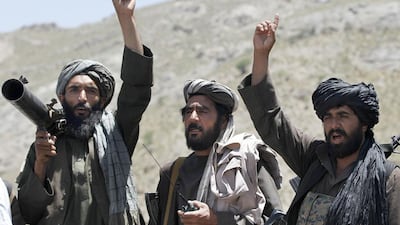Any military force created to project military power must meet some prerequisites. Foremost, it must be a maritime power. Seas are the most convenient means of transporting not only goods, but also the munitions of war and the soldiers.
But when they reach their destination, these militaries must then be capable of landing and then the land forces, assisted by air as well as sea based artillery, must conquer territories.
To this end, complete air and naval supremacy is ideal but, at the very least, it is essential to have local air and naval supremacy at sea over the maritime convoy and on the area of land where operations take place.
Thereafter, it is a question of application of force.
Force is not merely a matter of numbers but a concentration of superior forces and firepower at the decisive point of each battle. The ability to achieve this superiority in each battle is the mark of generalship. Nor is the application merely a question of where force can be applied, but where it can be applied decisively.
Great generals have won battles with smaller total numbers and lesser firepower overall, by ensuring local superiority in both at the point of decisive impact.
The United States has today, without doubt, the strongest military force in the world. It can ensure local superiority of its air and naval forces whenever and wherever it wants. It can land its ground forces and carry out sweeping manoeuvres to outflank and destroy enemy forces. That is what it was created for.
But the nature of war has changed.
Today, the enemy is seldom a state that one could wage war against, defeat, capture, destroy or hold. More often, the enemy is, first of all, an idea. And when the use of force – even if by a state – takes place, more often it does so in skirmishes that inflict damage in intense but brief encounters, rather than in pitched battles.
Can the US military win against this elusive enemy?
To answer this question, we could look at the US invasion of Afghanistan.
In October 2001, the US and its allies launched “Operation Enduring Freedom” and, within weeks, swept across the country.
By December, they were able to put in place their hand-picked leader, Hamid Karzai, as the head of an interim national government.
Today, 16 years on, US forces are still hard put to hold their own against the Taliban, people they refer to as terrorists but who style themselves as freedom fighters.
Afghanistan is – and Afghan people are – if anything, far more insecure than in 2001. By any definition, the Taliban have been very successful in, at the very least, denying victory to the US.
In my military dictionary, if a few thousand ragtag guerrilla fighters can deny victory to the mighty military machine such as the US, then they have inflicted a defeat.
Or, let us look at it from another angle – what did the US invade Afghanistan for?
While there were many reasons – some overt, others covert – surely one of them was that Afghan soil should no longer harbour individuals or groups such as Al Qaeda, who are the declared enemies of the US and most of its allies.
Has the US achieved this goal, or any of its other aims of this war? If not, is that not a defeat?
We could look at Iraq, or Libya, or Somalia or any of the other US ventures in many parts of the world and come to the same conclusion.
The US military can still conquer territories and overcome rival armies – but it cannot win wars.
That is because this is not the kind of war in which concentration of superior firepower at the strategic level can win victories. These are not even battles but skirmishes, raids, ambushes, in which the enemy has used improvised explosive devices with lethal effect.
You still need to identify and destroy the centre of gravity. But what if the centre of gravity is an idea, a thought, or something equally elusive such as a hatred for the values for which the US now stands?
Perhaps destroying an idea – or an emotion such as hate – needs something other than force to destroy it.
At present the US use of military force by land, air or sea is indiscriminately punitive, perhaps by default but probably, by design.
Despite the lip-service to “minimising collateral damage” they are, in fact, totally indifferent to this kind of loss of life.
Consequently, nearly every country subjected to military intervention on “humanitarian grounds” is left more unstable than before. One result is that a far larger portion of its citizens dislike the US than had done so before.
The use of force will never lose its utility in human relations, whether between individuals, groups or states. But it is for those who order its application and those who apply it to use force judiciously, proportionately and exclusively to ensure they successfully achieve their aim.
The US politico-military leadership needs to comprehend the change and adjust to this reality.
Regretfully, they are intent on proving Basil H Liddelhart’s words correct that “the only thing more difficult than getting a new idea into the military mind is to get an old one out”.
Brig Shaukat Qadir is a retired Pakistani infantry officer

